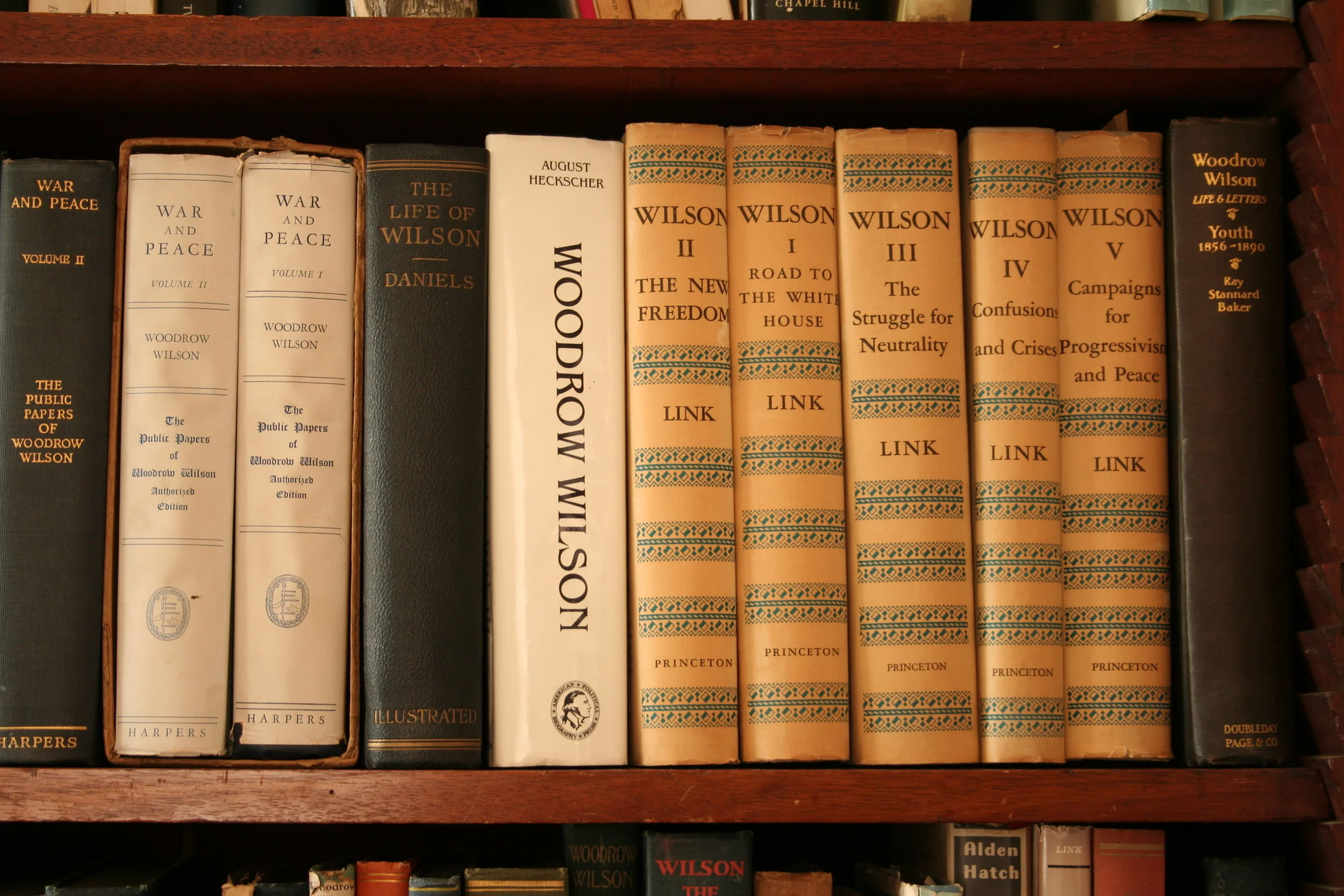More Fun with Gov Docs
/Woodrow Wilson Presidential Library & Museum Collection
You might have read about our recent visitors at the museum from Kosovo, Albania, and North Macedonia, who came to commemorate Woodrow Wilson for the anniversary of the Paris Peace Conference. They invited our CEO, Robin Von Seldeneck, and Staunton’s mayor to go to Skopje to take part later in the unveiling of a Woodrow Wilson statue. That got me thinking about what historical resources are available to tell us about the connections between President Wilson and Albanians.
BalkanInsigh
One obvious place to look is the Office of the Historian at the US State Department, where they have a collection of documents on foreign relations during the Wilson Administration. By doing a word search at the site, I was able to come up with 71 records there that mention Albanians, such as these notes on a meeting at the Paris Peace Conference which relate:
General Phillips ended his statement by declaring that the establishment of an autonomous Albania would form a great bulwark between the Jugo-Slavs and the East.
The printed text of this meeting distributed by the State Department can be found by doing a search of the document number at the digital collections of the University of Wisconsin.
The digital version of the Woodrow Wilson Papers can also be searched to find statements like the following from February 26, 1920:
The French and British Prime Ministers desire further to record the wording of appreciation of the interest taken by the American Government in the future of the Albanian people.
There is a great deal more material in the files of the Wilson Papers at the Library of Congress, however. Even though this material has all been microfilmed, it can still be a bit difficult to use for research. A search in the finding aid, for instance, brings up nothing, but there are helpful listings in the index.
It is from here that you can go to the galleries from the thousands of reels of microfilm and slowly look around for something near the right date until you find something like this, a petition from the Albanian delegation at the peace conference directly to President Wilson.
Even more helpful from the index, though, is the listing of the executive case file numbers from the presidential office. That includes “Albania 1920” as an active file, #5257, which contains twenty pages of letters about Albanians. With a bit of computer magic, those letters can be downloaded and converted to pdfs so that a character recognition program can try to work out the words.
From there it just takes a website to make it all available. The Wilson Papers in their entirety can be used for research or publication, or even organized into exhibits such as our new project on historical sources from the Paris Peace Conference. And while the dodgy character recognition on old documents like this means that the transcription will ultimately need to be edited, these technologies allow us to make history easily and quickly available.









